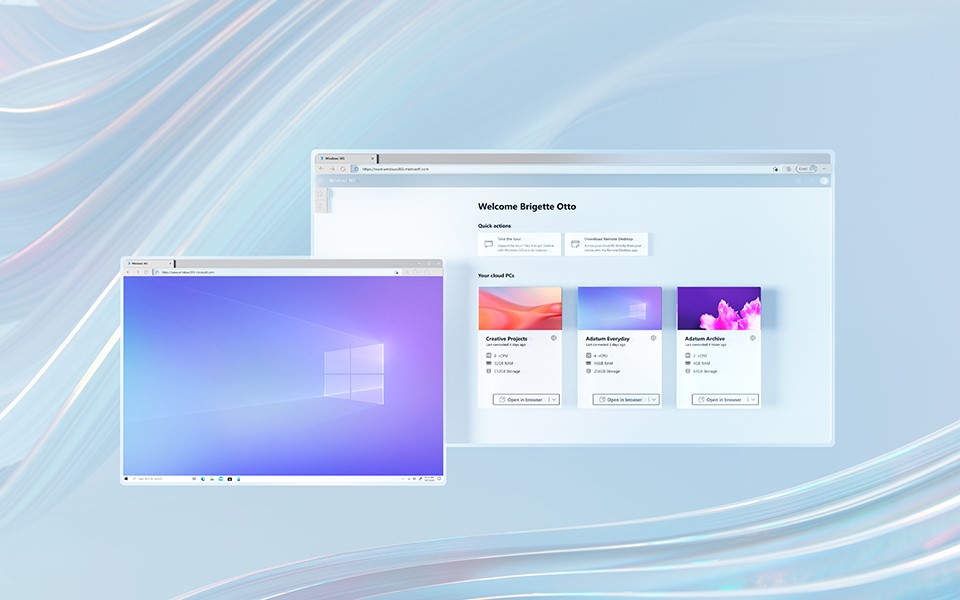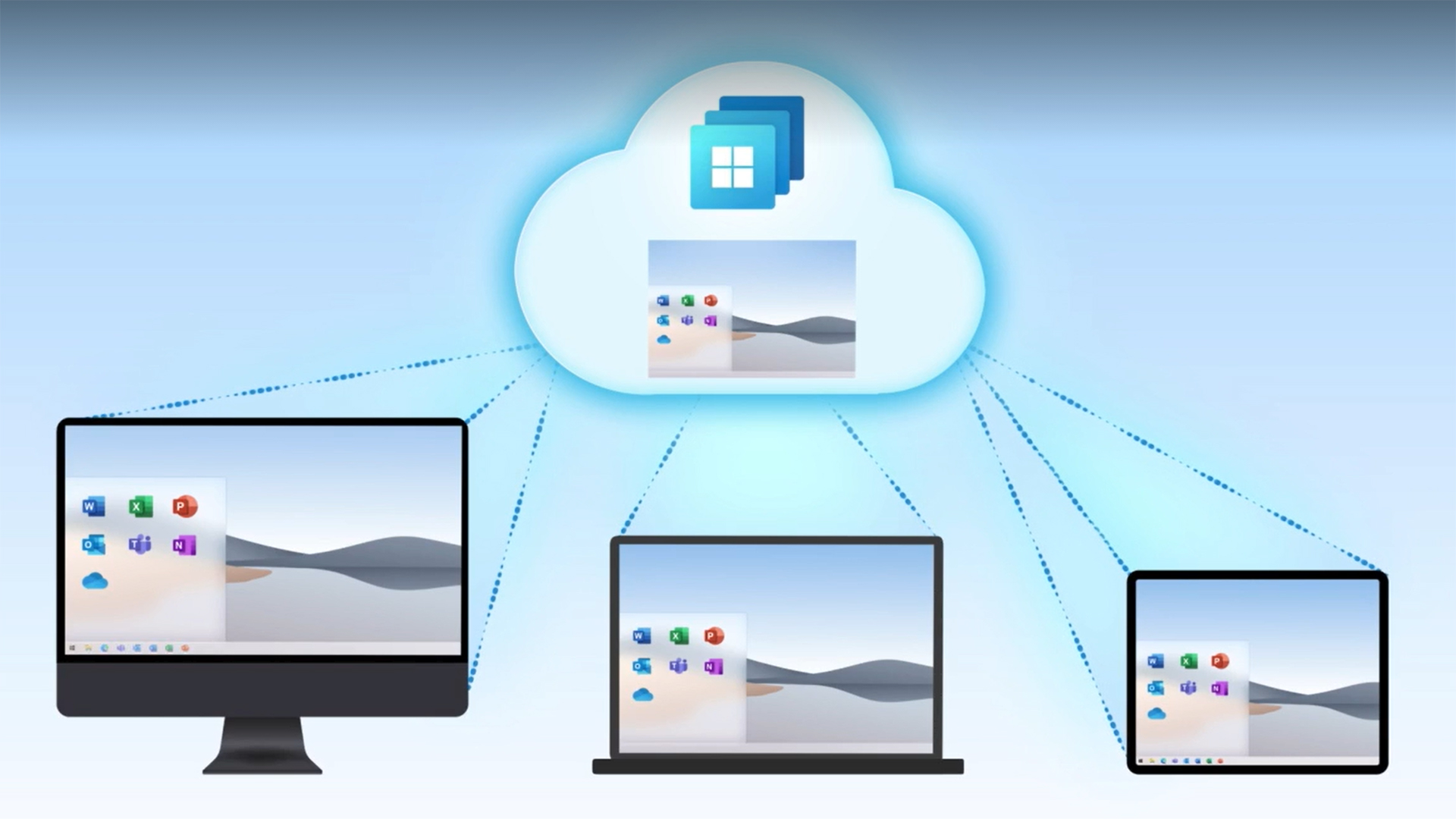A new type of PC could gain popularity with the arrival of mixed-mode work in the fall: the cloud PC, where your documents and software can be accessed from anywhere and on any device.
Shut down your computer at the office, resume your work on a tablet on the commuter train, and complete it the next day at home on your personal computer. This is the kind of scenario allowed by Windows 365, a cloud-based computer service that will be launched on August 2 by Microsoft.
Folder location, settings, programs, wallpaper: Everything will be the same regardless of whether you access it using a Windows PC, Mac, or iPad. Scott Manchester, Chief Engineering Officer for Windows 365, summarizes in an interview with news. Windows 365 really pushes cloud computing even further: it’s not just certain data stored in the cloud, it’s all the content on your computer that resides in a Microsoft data center.
For Microsoft, it’s a whole new kind of computer.
Old concept, new business model
The idea is not new, though. Companies like Citrix for several years have been offering “virtual” computers, which can be accessed remotely using any computer, even if they are reasonably priced. Microsoft itself actually makes it possible to start Windows sessions online through the Azure Virtual Desktop service. “These solutions are often complex, and require a certain expertise to be deployed,” defines Melissa Grant, Director of Product Marketing for Windows 365. Here, everything has been thought for simplicity above all else, both for the company and just for the user. The latter only needs access to the Internet and a web browser.
Until now, remote computers were often designed to run heavy applications, software that had to be active at all times, or to simplify the management of a computer pool for a very large company with employees all over the world. Other services, such as Shadow PC, are intended for specific uses, such as video games.
Instead, Windows 365 wants to replace employees’ work computers, whether it’s browsing the web, writing reports, or playing games. minesweeper during rest periods. Any company, even small and medium-sized companies that have a single worker, will be able to benefit from it. However, consumers will not be able to directly subscribe to Windows 365 at launch.

There is also another difference between Windows 365 and current virtualization services. While it will often have to be paid for based on usage, Windows 365 will be offered at a flat rate, per month and per user (various plans will be announced on 1he is August).
Concept adapted to hybrid work العمل
“We think this new class of computers will be particularly useful for working in mixed mode,” explains Melissa Grant.
Cloud-based computers already offer many advantages for those who will be working from their office and from home. Corporate data will be protected even in the event of theft or breakage, for example, and the computer will reside on a secure network, in Microsoft data centers.
“We also keep different versions of the computer over time,” Scott Manchester notes. Thus, the targeted person of the ransomware can recover a working version from their computer with just a few clicks.
A cloud PC should also facilitate the management of a company’s IT equipment. It can be easily updated, and its performance can be reassessed if necessary, in order to offer more RAM or a more powerful processor to the employee who has to accomplish new tasks.

It is clear that the business owner will still have to provide computers to his employees, but they can be inefficient and only require access to the Internet. If this concept is adopted, we can also imagine that over time some computer manufacturers will release devices that are optimized specifically for cloud computing and work in mixed mode, for example with low-power processors and small storage space, but excellent battery life and a good webcam.
Remember that in Quebec, the gradual return to offices will be from September 7. The government intends to introduce a mixed mode For public servants, but the private sector will be free to return face-to-face, continue to work remotely or adopt hybrid mode.

“Certified gamer. Problem solver. Internet enthusiast. Twitter scholar. Infuriatingly humble alcohol geek. Tv guru.”





